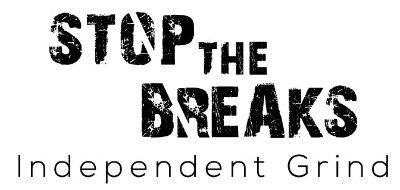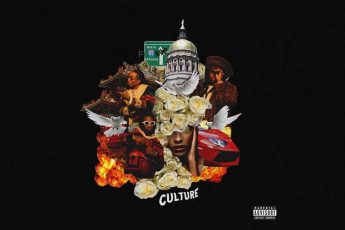
All across the world there are hopeful musicians, creative souls, clever instrumentalists and prolific music composers who would like nothing more than to make a meaningful income – perhaps even make a full living wage – on their music.
One way to achieve this, given that you have enough creativity, skills, energy, drive and staying power, is to make money by composing and recording music for one or more royalty free music music sites. There are sites where one can get Video game music for developers and you can use these sites to make a start with your music career.
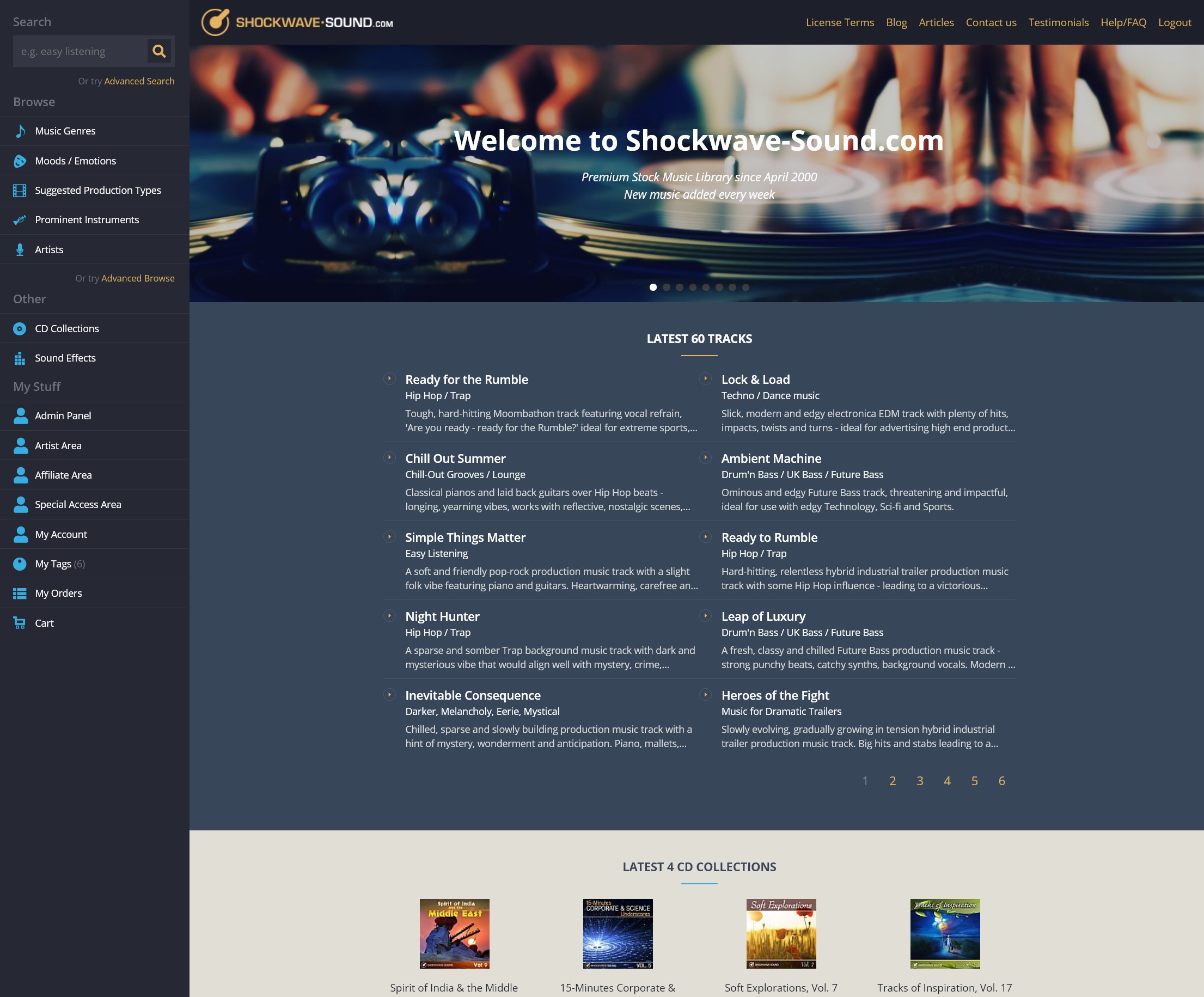
Shockwave-Sound (pictured above) is one example of a good quality royalty-free music site.
Royalty-free music is a way to describe music where the music user, the company or person that ends up exploiting the music in their own project or media, pays no royalties, but pays only a single up-front one-time licensing fee in order to use the music.
Yes, you can make royalties on royalty-free music
It is perhaps somewhat counterintuitive that many composers make good royalties from music that they have created as royalty-free music! How is that? Because often times, the creator will place his music onto one or more stock music or royalty free music websites, and each time a customer/client buys the music for a one-time fee, the composer gets a share (a royalty) from the stock music service.
A split of 50/50 is generally considered a fair and good deal for composers to receive when their music gets picked up by a customer who pays to license it, though, some services operate with a split of 60% in favour of the company and 40% in favour of the artist, or in some cases, even less. My advice would be to never accept any deal where you don’t get at least 40%; any less than that would be considered by many to be exploitative towards the artist by the company.

Musician playing guitar and composing new music
Create music for stock music libraries for buy-out
Some companies / services offer a buy-out sum per music track, rather than a royalty share for each end-user license sold. This means that the royalty free music company you make the deal with will pay you a one time sum and for this they will quite simply buy the music track from you outright. Most likely, they will ask you to sign a «work for hire» contract, showing that you composed and recorded this music specifically for that company under a contract where you are hired to do a certain job (in this case, compose, perform and record music tracks) and when you’ve been paid for that job, the company’s commitment to you is completed and they don’t have to pay you any royalties in the future.
Patience really is a virtue when creating music for royalties
With dozens of different royalty-free music sites available on the web, some run by large, multinational corporations and others, more «boutique» sites focusing on quality rather than quantity in their music repertoire, there are many options for customers (in this case, end-users) to choose from, and a lot of pretty good musicians are interested in a share of the income generated when media production companies license stock music or royalty-free music for use in their videos, corporate presentations, TV productions, games and apps, installations and social media.
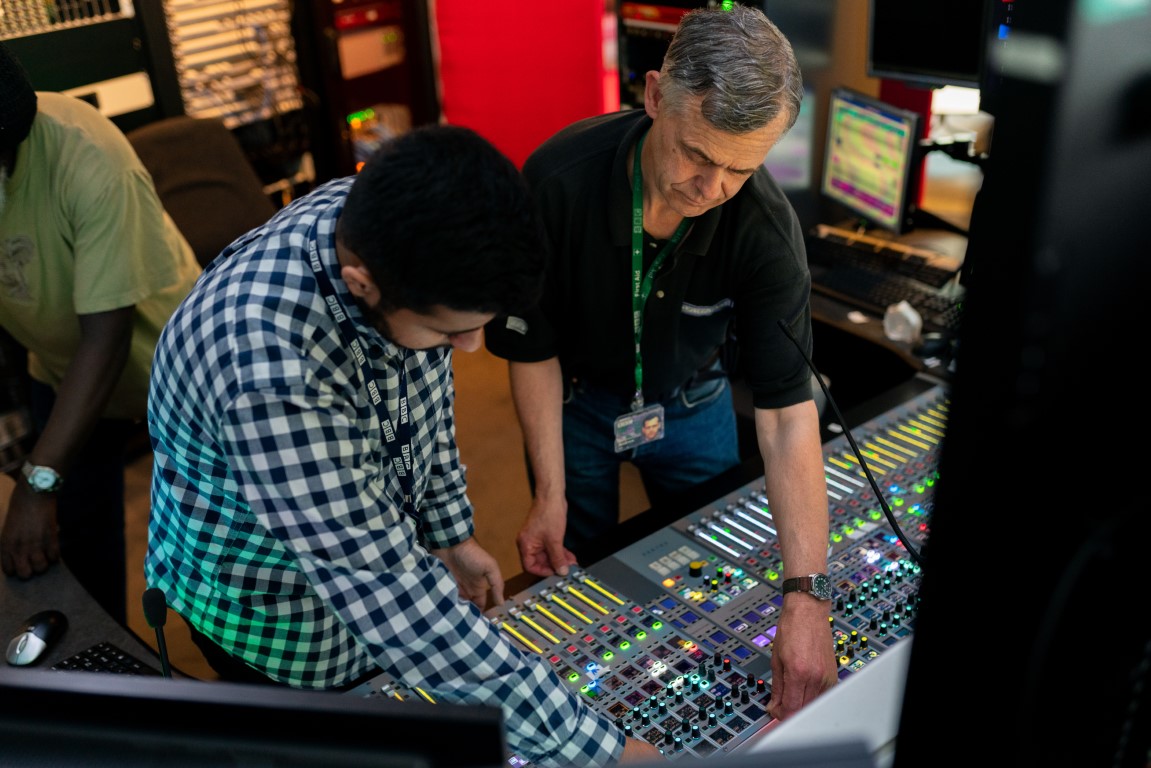
TV production companies represent one example of a customer / licensee for royalty-free music or professional production music libraries.
There are a lot of musicians out there producing music of varying qualities and styles, and it goes without saying that there is a lot of music tracks out there available to customers. Some sites have thousands of tracks, some tens of thousands, or even hundreds of thousands of tracks available to customers. So how can you make customers choose to license your tracks rather than one of the huge number of other tracks available to them?
Make sure your music is professionally recorded, produced and mastered:
With so many tracks available, customers are likely to listen only to the first few seconds of each track before making up their minds, so you’d better make sure that whoever is browsing through dozens of tracks that came up in their music search results instantly likes the sound of your track. And this cannot be done through a clever song structure or a beautifully developed musical theme alone. If your theme takes 2 minutes to develop, that’s no good for impressing the guy who listens only to the first 6 seconds. What you can do in 6 seconds is to make sure that your sound selection, production, recording and mastering sounds awesome from the outset.

Good recording, mixing and mastering equipment is important when creating music that end-users will choose for their productions, but even more important is knowing how to use the music recording equipment to its full potential.
Be patient and keep writing more music:
If you have 3 tracks represented on a website that offers end-users 20,000 tracks to choose from, it goes without saying that you’re not going to be heard that often. It’s not an ideal situation because really, quality should be way more important than quantity, but you can’t get away from the fact that making a nice income for yourself from royalty-free music creation is a matter of producing quality and quantity. The more tracks you have out there, the more often you’re going to make a sale and make income.
Don’t fall into the trap of spending more time uploading than creating
Because you need to be continuously composing and recording music for months, years, maybe even decades (!) to build up a very strong portfolio of music tracks that will start to make a meaningful level of income for you, you need to actually spend your time and energy available for doing just that – composing and recording music. Try to be wary of falling into the trap of spending more time on «dealing with royalty-free music sites» than on actually creating music. If you’ve ended up in the situation where you create music on Monday, but then you spend Tuesday, Wednesday and Thursday uploading and configuring your music on multiple websites in the hope of making a sale here and there, you’re misusing your time and energy. You may consider perhaps working only with one company, and perhaps even a company that helps you with the task of cataloguing, describing, keywording, configuring meta-data and all such things, and then take care of the distribution for you. If you do that, you’ll be able to just send your music with good information one time to that one company, and the company will then go ahead and take care of the rest – while you go back and write more music.
Use websites and social media to promote your music
Try to use the internet and social media such as this YouTube royalty-free music channel to promote your work, but again, don’t fall into the trap of being stuck all day on social media while no new music is being created. Remember, you have to spend most of your time and energy actually creating, and you need to be doing that consistently over a long time before earnings start to build up to a meaningful level.
In Summary
Making music for royalty-free music services, professional production music libraries or stock music libraries, can represent a fair amount of income for you, but only if you work hard, have talent, manage your time successfully, and keep at it, for months and years on end. It’s by no means an «easy road to riches» but it can be very satisfying when it starts to bear fruits.
Good luck!
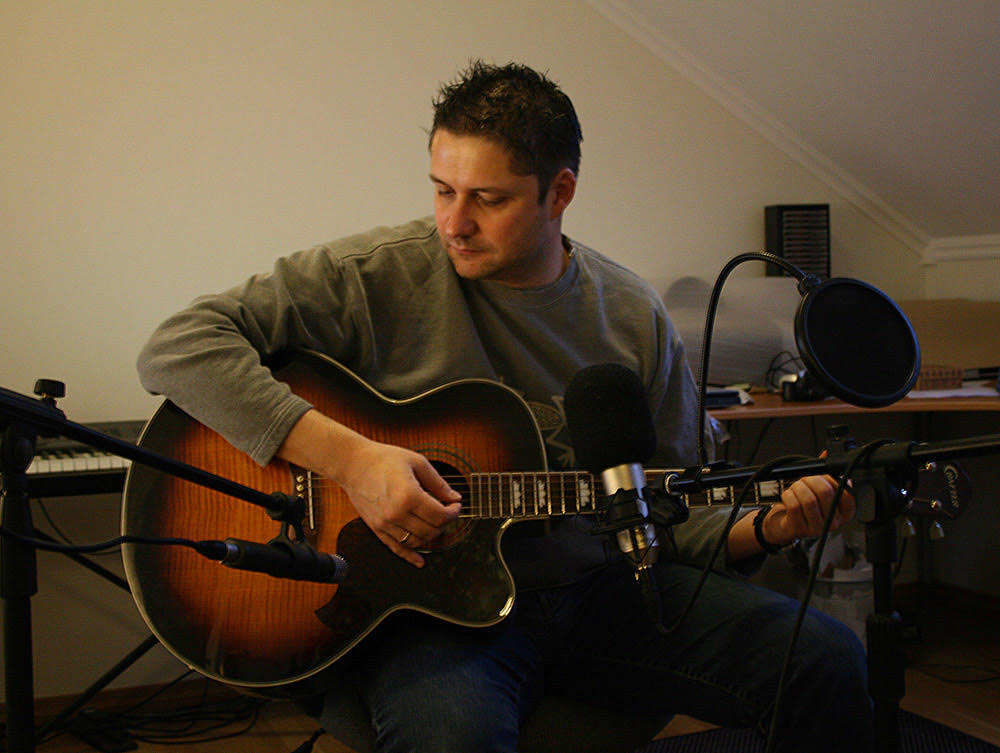
About the author: Bjorn Lynne is a Norwegian music composer, artist and producer who spent 15 years composing music for films and video games, and then went on to compose music for the royalty-free music industry, as well as starting his own royalty free music website. Bjorn plays keyboards and some guitar and bass, and also used to play drums in a band as a young adult. Today, Bjorn continues to create music in his home studio while managing his stock music business. He is also an eager recreational tennis player and yoga novice.
